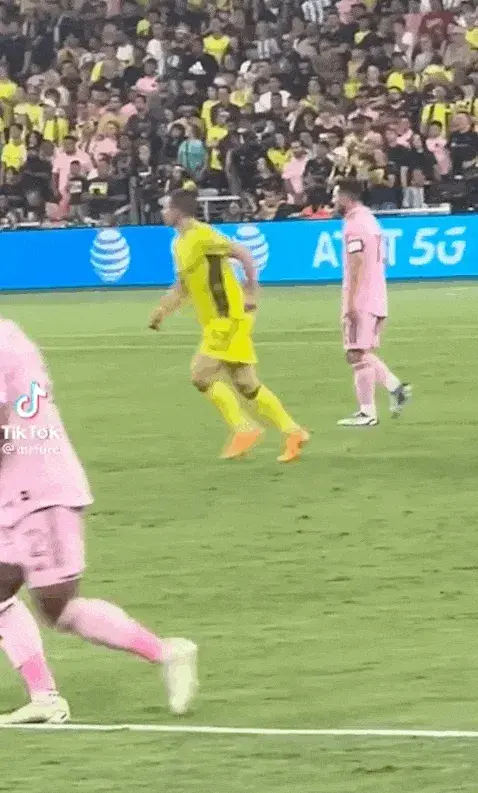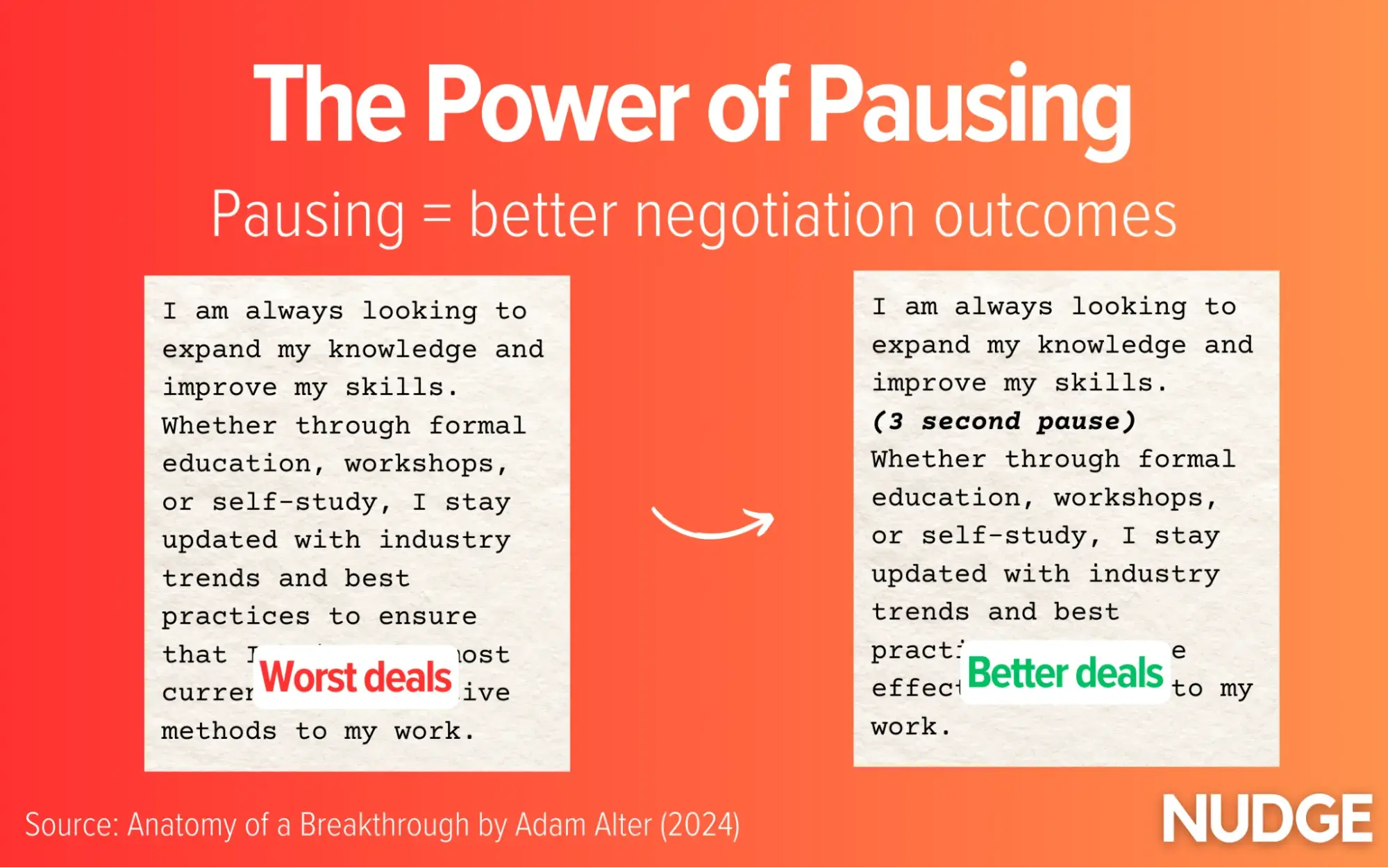Our view at Stack - Simplify growth with an all-in-one platform. Powerful marketing, sales, and support automation. Integrated CMS. Scalable software. Crafted for customer experience.
Welcome to Creator Columns, where we bring expert HubSpot Creator voices to the Blogs that inspire and help you grow better.
A few months ago, on my podcast Nudge, Jonah Berger told me about the power of pausing.
![Download Now: Negotiate Like a Pro [Free Guide]](https://no-cache.hubspot.com/cta/default/53/a3e6022e-8457-4a1e-8a5f-335ee56050c4.png)
The act of pausing seems like a small thing. But recent studies show that pausing can make you more persuasive and can improve outcomes.
In this blog, I’ll share some of the science behind this phenomenon and how to apply it to your next negotiation.
Pausing shows confidence.
He shared how highly successful speakers often use a surprising amount of pauses when they talk.
Jonah shared this clip from an Obama speech and told me to listen for pauses. You can see the speech here:
That clip is just 45 seconds long, yet Obama pauses for one second or more eight times.
Jonah says this isn’t by accident. Obama has taught himself to slow down and pause more often. Why? Well, according to Jonah, it makes the former president sound more confident.
Jonah has conducted studies that prove this (cited in his book Magic Words).
He and his colleagues showed a group of participants a speech recording. 50% of the participants heard the presenter talk without pauses. The other 50% of participants listened to the exact same presentation but with pauses included.
The two different groups of participants were then asked what they thought of the speaker, how they rated the content, and how positively they felt about the talk.
Jonah Berger discovered that the pausing speaker received better scores across all different questions.
Remember, the content of the speech was identical — the tone, the style, the accent — it was all the same. The only difference between the two speeches was the pauses, and those pauses dramatically changed how the speech was perceived.
Pauses can be strategic.
Pausing won’t just help political candidates. It has helped one of the world’s greatest footballers, Lionel Messi.
Pausing is one counterintuitive thing Lionel Messi does that makes him great. Unlike his peers, Messi spends the first three minutes of a match doing nothing. He doesn’t sprint, tackle, or pass; he strolls around the pitch.
But why?

Image Source
Adam Alter shared the reason while chatting with me on a recent episode of Nudge.
He explained that Messi struggled as a youngster. He was extremely anxious when he first set foot on the pitch. Often, he was physically sick as the game started and had to leave the field to recover. His anxiety made it impossible for Messi to play to the best of his ability.
Maradona famously said Messi would never succeed because he’s too anxious and too nervous.
It seemed like Messi was destined for a career of missed opportunities until one Barcelona youth coach gave him some advice.
He told him to pause at the start of the game, not feel pressure to run or tackle, and not start playing the game until minute three. Just amble around, take in your surroundings, watch the opponents, and calm yourself down.
Pausing worked. Rather than frantically starting the game like every other player, Messi took the time to settle his nerves. And this inaction became a surprising advantage.
Having time to pause gave Messi the space to analyze his opponents quickly. Is there a weakness in their set-up? Is there space somewhere in the defense? Usually, there is, and Messi, after settling his nerves, would have no trouble taking advantage of it.
The Power of Silence in Negotiation
Pausing has a strategic benefit for Lionel Messi and Barack Obama, helping both reach the top of their game.
But is it useful for the rest of us? Can we apply it if we don’t play professional football or deliver professional pitches?
Well yes. Evidence suggests it might be worthwhile to try this approach during your next negotiation.
In one study (cited in Anatomy of a Breakthrough), a team of psychologists studied the value of pauses during negotiations. Specifically, the researchers focused on wage negotiations. They hypothesized that pausing could persuade hiring managers to offer higher wages.
For the test, the researchers recruited 60 pairs of university students. Students were assigned one of two roles. Half were hiring managers, half were job candidates. All were given 45 minutes to negotiate over pay for the hypothetical jobs.
But here’s the twist. 50% of the job candidates were explicitly directed to pause during the negotiation.
So, half negotiated as normal, but the other half were forced to pause.

The pausing worked. The job candidates who paused received a larger pay packet offer from the hiring manager.
Those who paused negotiated better deals (for both parties). According to Adam Alter:
“They inspired superior outcomes for both parties and encouraged negotiators to see that some issues could be negotiated to the benefit of both parties rather than competitively.”
It’s common to feel like Messi at the start of his career — anxious and sick with energy. In a negotiation, we feel a need to showcase our strength quickly and dismiss problems promptly, fueled by a rush of adrenaline that makes us speak louder, faster, and without pauses.
Yet studies in the lab find that this natural response has notable downsides. Those who energetically rattle off points will get worse negotiation outcomes than those who take their time.
Pausing might feel counterintuitive or wrong, but if it works for Barack Obama and Lionel Messi, it should work for you.
![]()
If Hubspot is of interest and you'd like more information, please do make contact or take a look in more detail here.
Credit: Original article published here.
